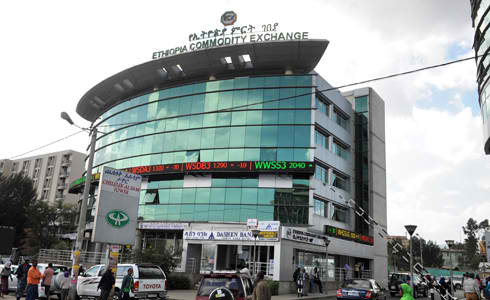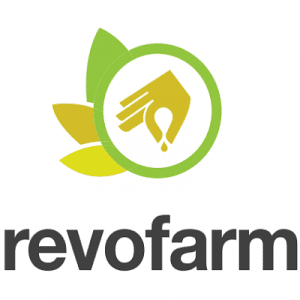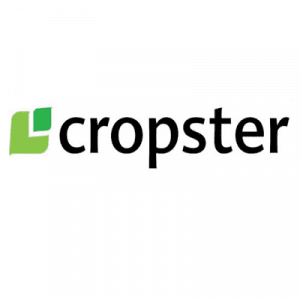
Agriculture
June 11, 2024
Open Learning Exchange – OLE
Read SolutionImplemented by
Planet Learning

Updated on June 11, 2024
·Created on June 11, 2017
The Ethiopia Commodity Exchange (ECX) is a national multi-commodity exchange in Ethiopia that brings together buyers and sellers of agricultural commodities.
The Ethiopian Commodity Exchange is a commodities exchange in Ethiopia that trades in agricultural goods such as sesame, coffee, white and red nuts, and other pulses. It seeks to provide a unified market for goods in Ethiopia.
The exchange’s goal is to provide a transparent commodity market in Ethiopia. It operates a central market with satellite offices, a system of warehouses and processing facilities that enable farmers or co-ops to deliver a commodity, grade that commodity, monitor prices, sell the product at the market, and receive payments.
Target SDGs
SDG 1: No Poverty
SDG 8: Decent Work and Economic Growth
Target Users (Target Impact Group)
Household
Distributors / Implementing Organizations
Ethiopian Commodity Exchange (ECX)
Countries
Ethiopia
Manufacturing/Building Method
N/A
Intellectural Property Type
Select Type
User Provision Model
ECX - Membership has many different types of users. Information to apply for either a client or limited membership is available on the membership page.
Members and clients are active in the market. They also have a number of registered buyers.
There are also the interactions of the farmers and co-ops that are utilizing the market information for crop planning, inventory, and prices.
Distributions to Date Status
Since 2015, the SMS service currently processes over 800,000 transactions per month while the IVR receives over 1 million calls/month.
Telecommunication service required
Internet access, SMS, IVR (Interactive Voice Response)
Device(s) required
Computer, mobile phones
Level of connection service needed
2G
Permanent network connectivity required (Y/N)
No
Usage rate (%)
Unknown
Additional features required
None
Two way communication (Y/N)
No
Literacy support (Y(specify) / N)
Yes, IVR (Interactive Voice Response) system available for access to information
Languages available
Amharic, Oromiffa, Tigrigna, and English
Operating system and version
N/A
Power requirements
N/A
eAgriculture application
Connection to market, Supply chain information, Weather information, Localization information
Design Specifications
Ethiopian Commodity Exchange (ECX) was created with the purpose of establishing a transparent commodity market for agricultural goods in Ethiopia. It started with a system to control the process from the farmers to export, where warehouses were established to sample, weigh, and grade commodities and issue goods received note. The warehouse and quality operations have been spun off into a separate operation Ethiopian Agricultural Commodities Warehousing Service Enterprise with the goal of focusing on modernizing the market platform and ensure the quality of commodities.
In order to provide access to market information, ECX utilizes a diverse mix of communication methods. These include rural-based Market Information Tickers, mobile phone Short Messaging Service (SMS), Interactive Voice Response (IVR) service, Mass media (TV, Radio, Newspaper), and online market information.
In 2015 ECX rolled out its e-trading platform allowing for more transactions and enabling members to make secure trades from anywhere. In order to provide more transparency in the sourcing of commodities, ECX introduced a national traceability system (eATTS) to help track the footprint of the products.
Technical Support
Provided by ECX.
Replacement Components
N/A
Lifecycle
N/A
Manufacturer Specified Performance Parameters
ECX seeks to connect all buyers and sellers in an efficient, reliable, and transparent market.
Vetted Performance Status
Hernandez et al, concludes that despite glowing reviews of ECX, it has little impact on the Ethiopian coffee price dynamics. They conclude that this is due to the fact that Ethiopia already had a well-functioning coffee market and that the efficiency that it introduced may be outweighed by the cost and regulation of the market. Francesconi and Heerink's research shows that while disputes still exist, the formation of ECX has reduced disputes over renegotiation with suppliers. Meijerink et al, found while there is significant potential to reduce poverty, there is the risk that access to the market was more advantageous to the larger scale farmers with easier access to resources than smallholder farmers and risked furthering the divide. They recommended that policy should be instantiated to ensure access by smallholder farmers and co-ops was enabled by the market.
Safety
N/A
Complementary Technical Systems
N/A
Academic Research and References
Hernandez, M., Rashid, S., Lemma, S., Kuma, T., 2017, Market Institutions and Price Relationships: The Case of Coffee in the Ethiopian Commodity Exchange. American Journal of Agricultural Economics. 2017;99(3):683–704.
Francesconi, G., Heerink, N., 2010, Ethiopian Agricultural Cooperatives in an Era of Global Commodity Exchange: Does Organisational Form Matter? Journal of African Economies. 2010;20(1):153–177.
Meijerink, G., Bulte, E., Alemu, D., 2014, Formal institutions and social capital in value chains: The case of the Ethiopian Commodity Exchange. Food Policy. 2014;49:1–12.
“Competitive Landscape – Egycomex.” n.d. Egycomex.Com. Accessed June 11, 2024. http://www.egycomex.com/
“Competitive Landscape – Home.” n.d. Ea-Africaexchange.Com. Accessed June 11, 2024. https://www.ea-africaexchange.com/
“Competitive Landscape – Commodity Derivatives Market.” n.d. Jse.Co.Za. Accessed June 11, 2024. https://www.jse.co.za/trade/derivitive-market/commodity-derivatives-market
Goal 1. (n.d.). Sdgs.Un.Org. Retrieved May 26, 2024, from https://sdgs.un.org/goals/goal1
“Goal 8.” n.d. Sdgs.Un.Org. Accessed May 29, 2024. https://sdgs.un.org/goals/goal8
“Ethiopian Commodity Exchange.” n.d. Com.Et. Accessed June 11, 2024. https://www.ecx.com.et/Pages/AboutUs.aspx
Aregahegn, Wondesen. 2020. “ECX Traded over 30 Bn Birr Commodities in Nine Months.” Welcome to Fana Broadcasting Corporate S.C (blog). April 30, 2020. https://www.fanabc.com/english/ecx-trades-over-30-bn-birr-commodities-in-nine-months/
“Ethiopian Commodity Exchange.” n.d. Com.Et. Accessed June 11, 2024. https://www.ecx.com.et/
“ECX Launches Independent Food Traceability System.” n.d. Usaid.Gov. Accessed June 11, 2024. https://2012-2017.usaid.gov/ethiopia/press-releases/ecx-launches-independent-food-traceability-system
“Ethiopia Commodity Exchange Proclamation (No. 550 of 2007).” n.d. Ecolex.Org. Accessed June 11, 2024. https://www.ecolex.org/details/legislation/ethiopia-commodity-exchange-proclamation-no-550-of-2007-lex-faoc095240/
Account. 2020. “Ethiopian Commodity Exchange (ECX) Traded 5.12 Billion Birr Worth Commodities in December.” Borkena Ethiopian News. January 10, 2020. https://borkena.com/2020/01/10/ethiopian-commodity-exchange-ecx-traded-5-12-billion-birr-worth/#google_vignette
Compliance with regulations
ECX was founded under Ethiopia Commodity Exchange Proclamation (No. 550 of 2007).
Evaluation methods
The Exchange is evaluated by the volume and value of goods transacted through the platform.
Other Information
Ted Talks about the Ethiopian Commodity Exchange.
Other publications

Agriculture
June 11, 2024
Implemented by
Planet Learning

Agriculture
June 26, 2024
Implemented by
OCHA

Agriculture
May 14, 2024
Implemented by
4R Digital

Agriculture
June 26, 2024
Implemented by
Millicom International Cellular

Agriculture
May 24, 2024
Implemented by
RML Agtech

Agriculture
June 1, 2024
Implemented by
Revofarm

Agriculture
May 24, 2024
Implemented by
Cropster Origin

Agriculture
May 24, 2024
Implemented by
Project Concern International

Agriculture
June 22, 2024
Implemented by
Shekab Private Limited

Agriculture
June 11, 2024
Implemented by
Akorion
Have thoughts on how we can improve?
Give Us Feedback